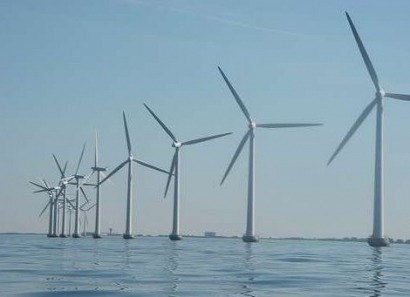
Cape Wind
Cape Wind was the first offshore wind project in the United States. The project took place off the coast of Cape Cod, Massachusetts. The project has taken many years and has been very controversial. Cape Wind Associates, LLC first applied for a permit in 2001. It was not until 2007 that a Certificate on Cape Wind’s Final Environmental Impact report was issued by the Commonwealth of Massachusetts. This process completed the state’s environmental review of the project. In 2010, the US federal government finally approved the development of the Cape Wind project. Cape Wind is still being debated today.
North Carolina
In North Carolina, the Outerbanks Offshore Wind project will help to benefit the state’s economic future, supplying the state with 10,000-20,000 new manufacturing jobs. This project started in July 2010 when Apex submitted an unsolicited lease application for 24 lease blocks off the coast of North Carolina. Since filing the application, the Bureau of Ocean Energy and the State of North Carolina have put together a task force, with local, state, and federal officials, to decide the targeted areas for the offshore wind project. The task force has not yet identified the preferred areas, but will identify them through a formal lease process. This is the beginning a multi-year development process. Opposition to the project says that the Outerbanks Offshore Wind project will be too expensive and a very long process.
Virginia
In Virginia the Hampton Roads Offshore Wind project is under review. Apex, one of the interested companies, has identified an area of interest of 168 square miles. The project would take place over several years. The Bureau of Ocean Energy Management will be holding an auction for these leasing blocks in 2013. The Hampton Roads Offshore Wind Project will benefit Virginia’s economy and will be a forerunner in future projects. Though the project is being discussed now, there are chances it may not occur until 2022 or later, because of the process, permits, and opposition.
Maryland
An offshore wind project is in the beginning stages in Maryland as well. In early 2011, Apex submitted an area of interest located 10 miles off the coast of Maryland. The Bureau of Ocean Energy Management, the State of Maryland, and stakeholders established the proposed area. The process will begin in 2013, with a competitive leasing process. Recently, Governor Martin O’Malley of Maryland passed The Maryland Offshore Wind Energy Act of 2013, which will take advantage of the Maryland coasts for offshore wind. Though the bill has finally passed after many years, the fight is still not over and O’Malley and his bill still face much opposition.
By now it is apparent why hiring a good public affairs firm from the get go is fiscally sound; an upfront cost of a few thousand dollars can be a small price to pay for the hundreds of thousands if not millions of dollars in expenses that could result from delays due to public opposition. Working on a grassroots level, a public affairs firm can foster trust and forge lines of communication between offshore wind companies and their public. As a result, the public is better informed about the benefits of the project, the opposition is neutralized, and support is generated for the offshore wind company.
In addition to providing strategic planning and issue management, a knowledgeable public affairs firm brings valuable tactics to the table such as:
A coordinated grassroots advocacy campaign organized by a public affairs firm can make all the difference between starting your offshore wind project on schedule and suffering delays. This means no delays and all the financial and bureaucratic pains that come with them.
Ultimately, a public affairs firm is a wise investment for any offshore wind farm project seeking to get their development off the ground on schedule. A good public affairs firm even pays for itself on the first day by saving your offshore wind farm development the thousands of dollars it would have cost to delay the project that day. Just remember to hire a public affairs firm before, not after your project encounters opposition in order to maximize its effectiveness and minimize your operating costs.

